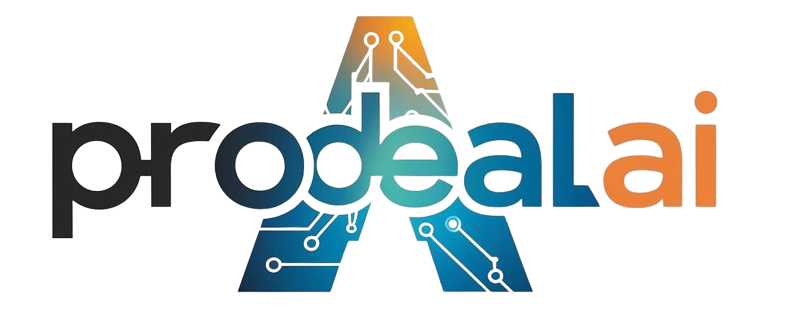In a world where technology reigns supreme, a new era has dawned upon us with the rise of artificial intelligence (AI). From transforming how we communicate to revolutionizing everyday tasks, AI is reshaping the way we live our lives. Join us as we explore the fascinating ways in which AI is revolutionizing daily living, and what it means for the future of our society.
Table of Contents
- Exploring the Impact of AI on Everyday Tasks
- Enhancing Efficiency and Productivity with AI Technology
- Navigating the Ethical Implications of AI Integration
- Maximizing the Benefits of AI in Various Aspects of Life
- Q&A
- To Conclude

Exploring the Impact of AI on Everyday Tasks
AI has become an integral part of our daily lives, impacting the way we perform tasks and interact with technology. From the moment we wake up to the time we go to bed, artificial intelligence plays a significant role in simplifying and enhancing various aspects of our routines.
One of the most noticeable impacts of AI on everyday tasks is in the realm of communication. Virtual assistants like Siri, Alexa, and Google Assistant have revolutionized the way we interact with our devices. These AI-powered tools can understand natural language, set reminders, answer queries, and even control smart home devices with just a voice command.
AI has also made its mark in the realm of healthcare, offering personalized treatment plans and improving patient outcomes. Machine learning algorithms can analyze medical data to predict diseases, recommend treatment options, and even assist in surgical procedures, ultimately saving lives and increasing efficiency in healthcare delivery.
When it comes to transportation, AI has transformed the way we travel. Self-driving cars powered by artificial intelligence can navigate roads, interpret traffic signals, and even avoid accidents. This technology not only makes commuting safer but also more convenient and environmentally friendly.
AI is also reshaping the retail industry, providing personalized shopping experiences and predictive analytics. Online retailers use recommendation engines powered by AI to suggest products based on a customer’s browsing and purchase history, making the shopping process more efficient and tailored to individual preferences.
Furthermore, AI has revolutionized the way we consume media and entertainment. Streaming platforms like Netflix and Spotify use algorithms to analyze user behavior and recommend content, creating a personalized viewing and listening experience for each subscriber.
In the field of education, AI is being used to personalize learning experiences and provide students with tailored resources and feedback. Intelligent tutoring systems can assess a student’s performance, adapt the curriculum to their individual needs, and track progress in real-time.
AI has also impacted the way we manage finances, with algorithms analyzing spending patterns, detecting fraud, and offering personalized investment advice. Robo-advisors powered by artificial intelligence can create and manage investment portfolios tailored to an individual’s financial goals and risk tolerance.
Moreover, AI has streamlined administrative tasks in various industries, from automating customer service inquiries to optimizing supply chains and inventory management. Businesses can leverage AI-powered systems to increase productivity, reduce costs, and improve overall operational efficiency.
As AI continues to evolve and permeate different aspects of our daily lives, it is essential to consider the ethical implications and ensure that this technology is used responsibly and for the betterment of society. With its potential to revolutionize daily living, artificial intelligence holds the key to unlocking new possibilities and transforming the way we work, communicate, and interact with the world around us.

Enhancing Efficiency and Productivity with AI Technology
AI technology has become an integral part of our daily lives, revolutionizing the way we work, communicate, and interact with the world around us. From virtual assistants like Siri and Alexa to advanced data analytics algorithms, AI is enhancing efficiency and productivity across industries.
One key way AI is transforming daily living is through personalized recommendations. Whether it’s suggesting a new movie based on your viewing history or recommending a restaurant based on your preferences, AI algorithms are constantly learning and adapting to provide tailored suggestions.
Another area where AI is making a big impact is in healthcare. From predicting patient outcomes to analyzing medical images, AI is helping doctors make more accurate diagnoses and improve patient care. This not only enhances efficiency in healthcare delivery but also saves lives.
AI technology is also revolutionizing the way we work. Through automation and machine learning, tasks that once required hours of manual labor can now be completed in a fraction of the time. This allows employees to focus on more strategic and creative aspects of their jobs, ultimately increasing productivity.
One of the most exciting developments in AI technology is the rise of chatbots. These virtual assistants can help with everything from scheduling appointments to answering customer inquiries, freeing up valuable time for humans to focus on more complex tasks.
AI is also being used to optimize supply chain management. By analyzing real-time data and predicting demand, AI algorithms can help companies reduce inventory costs and improve delivery times. This not only saves money but also enhances the overall efficiency of the business.
In the education sector, AI technology is being used to personalize learning experiences for students. By analyzing individual learning styles and preferences, AI algorithms can recommend tailored educational materials and track student progress in real-time.
AI is even revolutionizing the way we shop. Through personalized recommendations and targeted advertising, e-commerce companies can deliver a more personalized shopping experience to customers, increasing sales and customer satisfaction in the process.
One of the most exciting applications of AI technology is in the field of autonomous vehicles. By using advanced sensors and machine learning algorithms, self-driving cars can navigate roads more safely and efficiently than human drivers, potentially reducing accidents and traffic congestion.
Overall, the rise of AI technology is fundamentally changing the way we live, work, and interact with the world around us. By enhancing efficiency and productivity in a wide range of industries, AI is paving the way for a more connected and intelligent future.

Navigating the Ethical Implications of AI Integration
As AI technology continues to advance at an unprecedented rate, the integration of artificial intelligence into daily life has become increasingly prevalent. From virtual assistants like Siri and Alexa to self-driving cars and automated customer service bots, AI is revolutionizing the way we live, work, and interact with the world around us.
However, with the rise of AI comes a host of ethical implications that must be carefully navigated. It is crucial that we address these ethical considerations head-on to ensure that AI technology is used responsibly and ethically.
One of the primary ethical concerns surrounding AI integration is the issue of privacy. With AI systems collecting vast amounts of data on individuals, there is a growing concern about how this data is being used and who has access to it. It is important that we establish clear guidelines and regulations to protect the privacy of individuals and prevent misuse of their personal information.
Another ethical consideration is the impact of AI on jobs and employment. As AI technology becomes more sophisticated, there is a concern that it will replace human workers in a variety of industries. It is essential that we develop policies and programs to support workers who may be displaced by AI and ensure that they have opportunities for retraining and reskilling.
Additionally, there are concerns about bias and discrimination in AI systems. AI algorithms are only as unbiased as the data they are trained on, and there is a risk that bias in the data could result in discriminatory outcomes. It is essential that we take steps to address bias in AI systems and ensure that they are fair and equitable for all individuals.
Furthermore, there are questions about the accountability and transparency of AI systems. As AI becomes more autonomous and makes decisions on its own, it is critical that we have mechanisms in place to ensure that these decisions are explainable and accountable. Transparency in how AI systems operate is essential for building trust with users.
Overall, the integration of AI into daily life has the potential to bring about incredible advancements and efficiencies. However, it is essential that we approach this technology with a critical eye and a strong commitment to ethics and responsibility. By addressing the ethical implications of AI integration head-on, we can ensure that AI technology is used to improve society in a positive and ethical way.

Maximizing the Benefits of AI in Various Aspects of Life
AI has become an integral part of our daily lives, revolutionizing the way we interact with technology and enhancing various aspects of our routines. From personalized recommendations on streaming platforms to voice assistants in our smartphones, AI is present in almost every corner of our daily activities.
One significant area where AI has made a profound impact is in healthcare. Through the analysis of vast amounts of data, AI-powered systems can assist in detecting early signs of diseases, help in medical imaging analysis, and even predict patient outcomes with a high level of accuracy.
Moreover, in the field of transportation, AI is optimizing traffic patterns, improving navigation systems, and developing autonomous vehicles that have the potential to revolutionize the way we commute. With AI at the core of these innovations, the future of transportation is looking more efficient and sustainable.
AI’s influence extends to the realm of finance as well, with algorithms enhancing fraud detection, offering personalized investment advice, and streamlining customer service processes. These advancements not only benefit financial institutions but also empower individuals to make more informed decisions about their money.
Education is another area where AI is transforming traditional approaches. With adaptive learning platforms, AI can personalize educational content based on individual learning styles and pace, making learning more engaging and effective for students of all ages.
Furthermore, AI is reshaping the way we shop and consume goods and services. From personalized recommendations on e-commerce platforms to chatbots assisting customers with inquiries, AI is creating more tailored and convenient shopping experiences for consumers worldwide.
AI’s impact on the entertainment industry is also noteworthy, with algorithms powering content recommendations on streaming services, generating music playlists based on user preferences, and even creating custom movie trailers. These innovations are enhancing the way we discover, consume, and enjoy entertainment content.
Another area where AI is maximizing benefits is in agriculture, where predictive analytics help farmers optimize crop yields, manage resources efficiently, and monitor plant health. By harnessing the power of AI, agriculture is becoming more data-driven and sustainable in the face of environmental challenges.
In the realm of smart homes, AI-powered devices are making daily living more convenient and energy-efficient. From smart thermostats that learn your temperature preferences to security cameras that can identify potential risks, AI is enhancing the comfort and safety of modern households.
Overall, the integration of AI in various aspects of life is opening up new possibilities, improving efficiency, and enhancing experiences in ways we never thought possible. As we continue to explore the potential of AI-driven technologies, we can look forward to a future where innovation and optimization are seamlessly woven into the fabric of daily living.
Q&A
Q: What is artificial intelligence (AI) and how is it revolutionizing daily living?
A: Artificial intelligence (AI) is the simulation of human intelligence processes by machines, particularly computer systems. It is revolutionizing daily living by creating smart technologies that can automate tasks, improve efficiency, and enhance decision-making.
Q: How is AI being implemented in everyday devices?
A: AI is being implemented in everyday devices such as smartphones, smart home devices, and wearable technology. These devices use AI algorithms to analyze data, predict user behavior, and personalize experiences.
Q: What are some examples of AI impacting daily living?
A: AI is impacting daily living in various ways, such as virtual assistants like Siri and Alexa helping with tasks, recommendation algorithms on streaming services suggesting content, and autonomous vehicles driving safely on the roads.
Q: How is AI transforming industries and businesses?
A: AI is transforming industries and businesses by streamlining processes, predicting trends, and improving customer experiences. It is being used in healthcare for diagnosis, in finance for fraud detection, and in retail for personalized marketing.
Q: Are there any ethical concerns surrounding the rise of AI?
A: Yes, there are ethical concerns surrounding the rise of AI, such as data privacy, algorithm bias, and job displacement. It is important for society to address these issues and ensure that AI is developed responsibly.
Q: What does the future hold for AI in daily living?
A: The future of AI in daily living is promising, with advancements in machine learning, natural language processing, and robotics. AI will continue to play a significant role in shaping how we live, work, and interact with technology.
To Conclude
As we journey through the ever-evolving landscape of AI technology, one thing is certain – our daily lives are being revolutionized in ways we could have never imagined. From smart homes to self-driving cars, the possibilities seem limitless. As we continue to embrace and adapt to these changes, one thing remains clear – the rise of AI is not just a trend, but a transformation that will shape the way we live, work, and play for generations to come. So, let us embrace this new era with open arms, and see where the power of AI can take us next. The future is here, and it’s looking brighter than ever.


